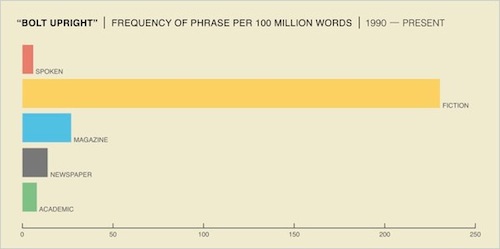I assume that suit salesmen everywhere can spot a liar, and they know what to do when one walks in. “Let me show you the olive brown,” they say. “It looks trustworthy.” Marc Morano is intrigued—not for himself, of course, but as a gift for his mother, who wears men’s suits as a sexual thing. “She’s exactly my size,” he says. Thus do sales associates perform a national service—but do we heed them? We do not. Some of us let Marc Morano of Climatedepot.com talk on our televised current-events shows, and we wind up broadcasting into space messages like this:
Let the public decide what’s the truth.
If the aliens hear that, they’re just gonna lose all hope. Video after the jump.


